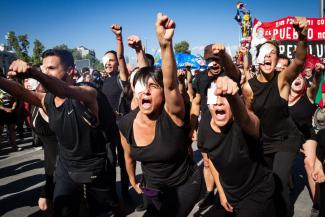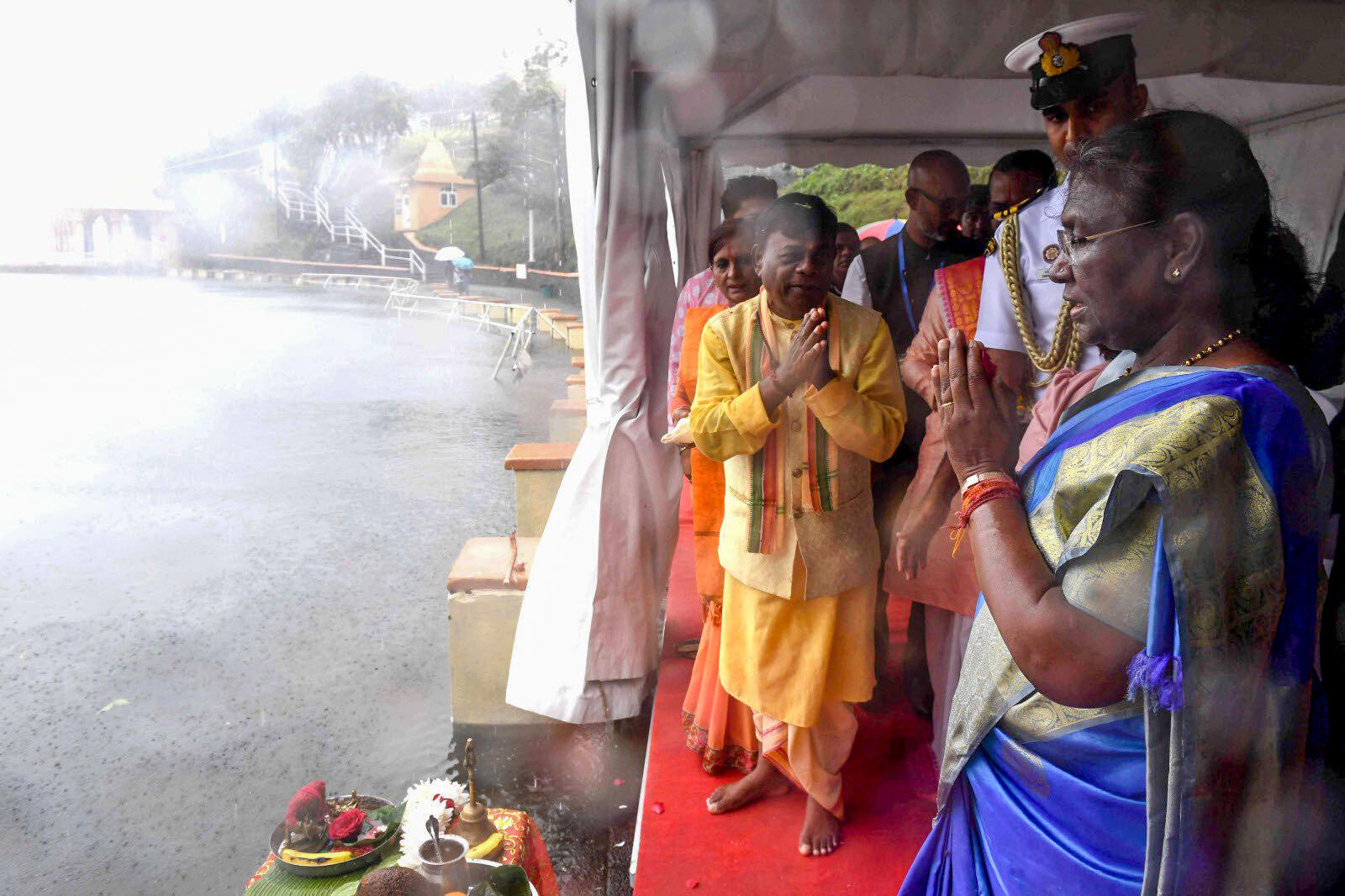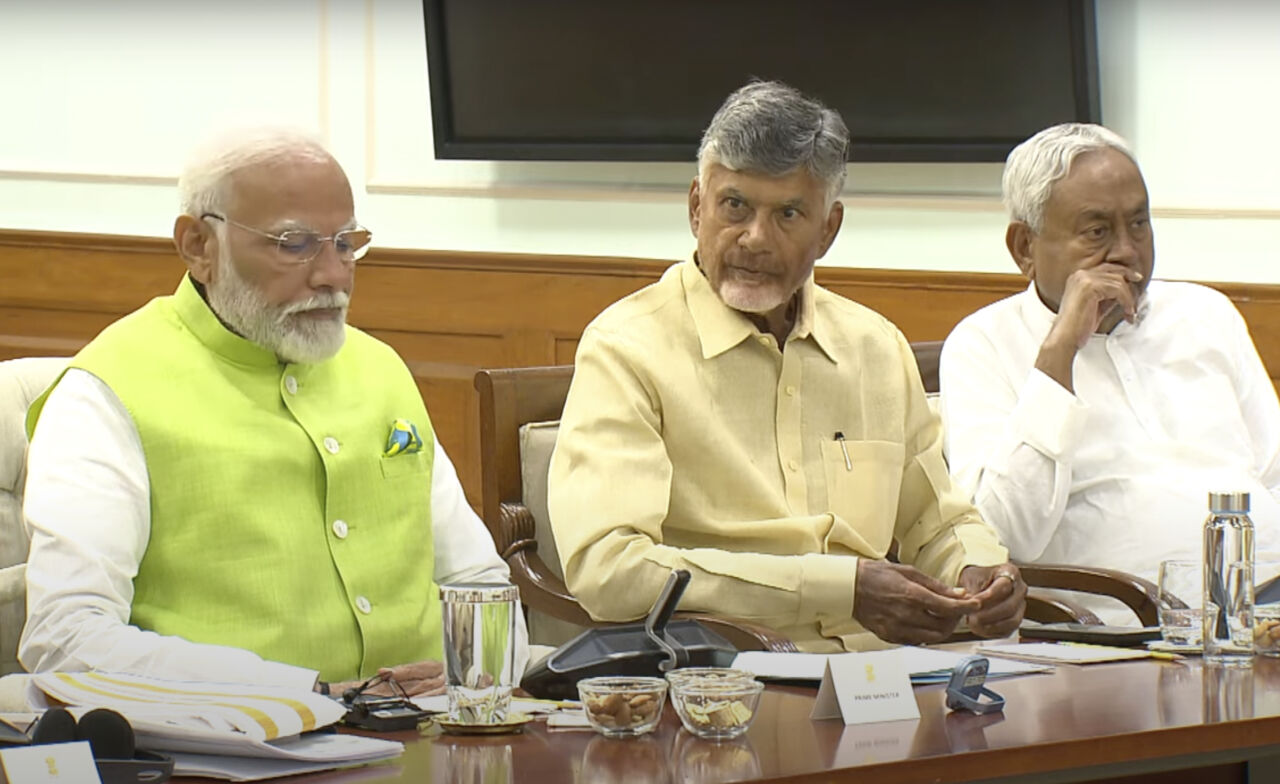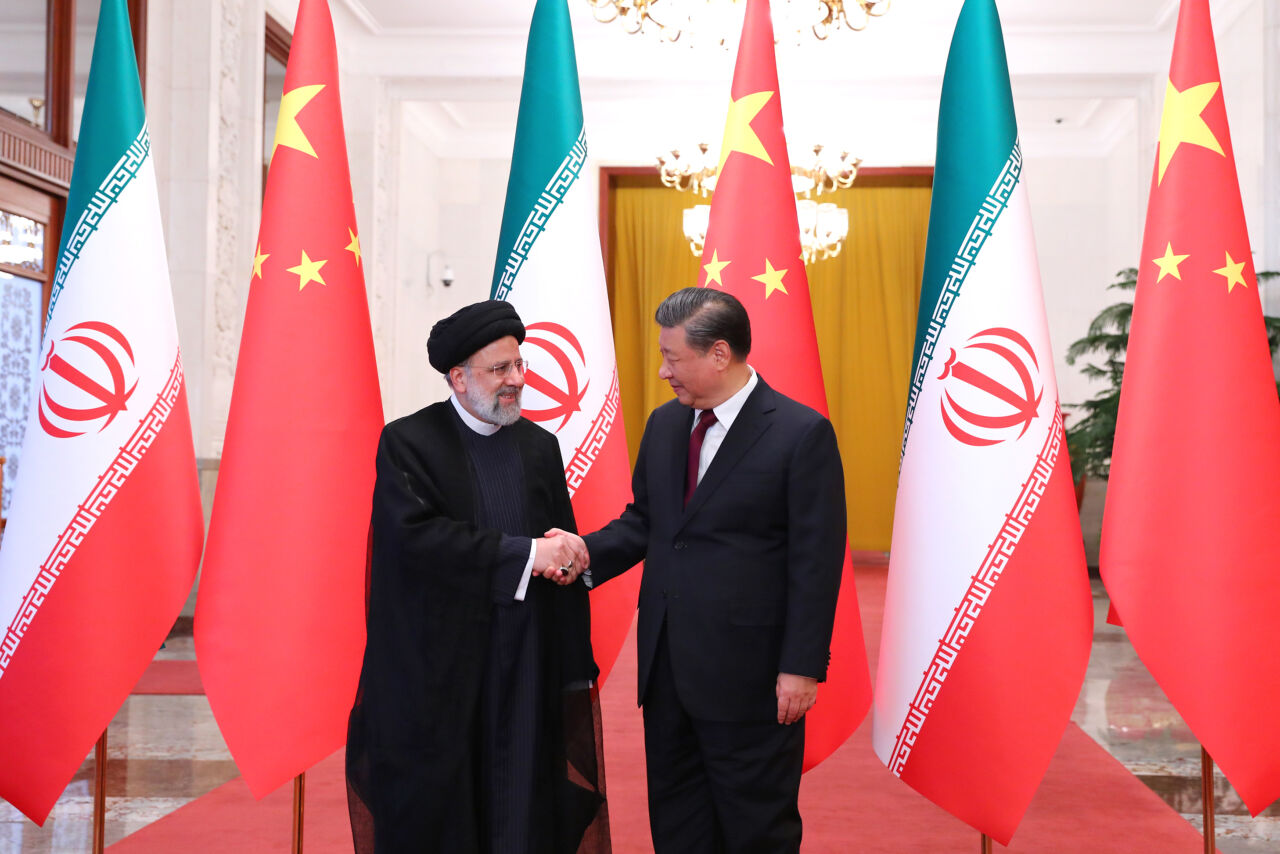Mass protests
The people want to live in peace and dignity

The Chilean protests started with a group of students evading the metro-fare increase in Santiago on 14 October. Across the country, protesters took to the streets to denounce rising income inequality and high cost of living. Decades of market-orthodox policies have made public transport, health care and education unaffordable for masses of Chileans who live on low wages or tiny pensions.
Protesters began overtaking metro stations and schools, barricading and blocking major roads, marching, chanting, boycotting and going on strike. Government buildings, churches and businesses were vandalised. Chile came to a standstill amidst the unrest. On 19 October, President Sebastián Piñera, who belongs to the country’s rich elite, declared a state of emergency and called the military onto the streets. His claim that Chile was at war sparked widespread anger. In response, protestors shouted slogans like “we are not at war, we are united”.
In Bolivia, protests started when three-term president Evo Morales was accused of electoral fraud to maintain his political power in the election of 20 October. The background is confusing. Morales, Bolivia’s first indigenous president had been in office since 2006 and his inclusive policies stabilised the polity. Nonetheless, he certainly deserves criticism. He ran for office once more even though the constitution he himself had introduced ruled out another consecutive term as head of state. Against his wishes, Bolivia’s people had not changed that rule in a referendum. In the end, Bolivia’s Supreme Court ruled that he had an undeniable human right to be a candidate. Quite evidently, Morales was evading a democratic rule that many nations observe and which leaders with authoritarian leanings have a pattern of circumventing.
At the same time, Morales was the clear frontrunner in the first round of the election. Fraud became evident when media coverage of the vote count was interrupted. When it resumed, his share had suddenly risen to a level that would have made a second round of voting unnecessary. However, he might well have won that second round.
Put under pressure by protests and admonished by the military, Morales resigned on 10 November. To many observers, the way things evolved looked very much like a military coup. Morales fled the country, and none of his parties’ top-elected officials could succeed him, as would have been the norm. Instead, Jeanine Áñez, a right-wing opposition senator, declared herself the interim president. She did not manage to be confirmed in office according to constitutional rules, but she obviously enjoys the support of the security forces. People are now protesting against her – and she ordered the military to repress them. She even issued a decree that exempted them from criminal responsibility. This decision too was reminiscent of dictatorship, but was later rescinded.
In Chile and Bolivia, the police and military have employed teargas, water cannon and even shotguns. When this comment was finalised in early December, 23 Bolivians and 19 Chileans had died. More than 600 Bolivians and 2,000 Chileans were detained. Over 200 Chileans had lost eyesight due to pellet shots, and bandaged eyes had become a symbol of human-rights activism.
Michelle Bachelet, the UN commissioner for human rights and a former Chilean president, has called on both Piñera and Añez’s governments to respond to the civil unrest sensitively and in accordance with international norms. Human Rights Watch and Amnesty International similarly expressed concern.
In both countries, the protests are now about social inclusion, deeper democracy and human rights. People demand the right to free and fair elections. They want to live in dignity and peace. They reject gender-based violence, the marginalisation of indigenous people and high income inequality.
In the meantime, Piñera has promised Chile will get a new constitution. If things go well – a big if – his nation will be able to vote for fundamental change in 2020. In Bolivia, Añez has promised elections. However, it is not clear who will lead Morales’ left-of-centre party and even less clear that the elections will be fair and free.
Katie Cashman is a UN Habitat consultant and lives in Santiago de Chile. In this comment, she is expressing her personal views.
kcashman23@gmail.com













